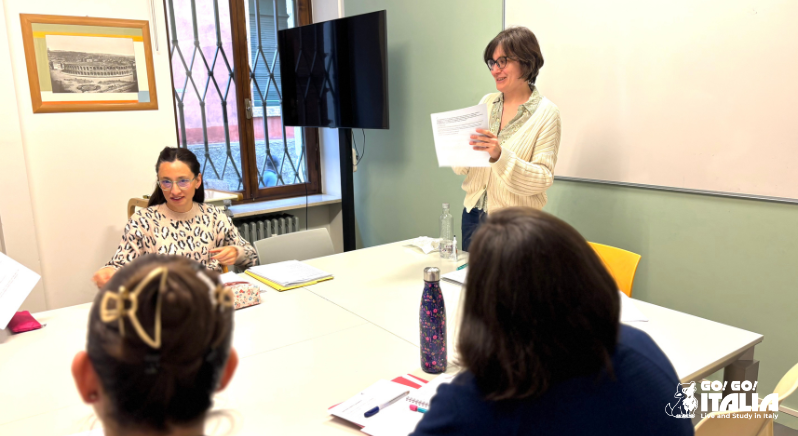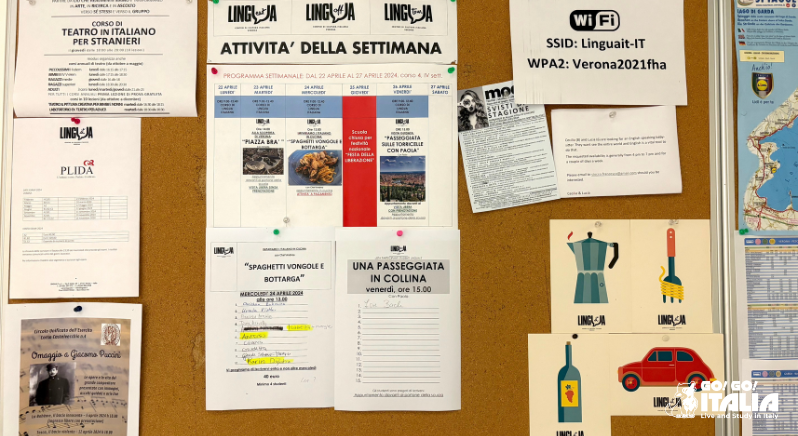If you are planning to study in Italy with an Italian visa, you’ve likely come across the language requirements needed to obtain your visa. This requirement is an important part of the application process and can vary significantly depending on your country of origin. In some countries, consulates may require proof that you’ve studied Italian for a certain number of hours, while in others, they may ask for certification of a specific level, such as A2 or B1, in accordance with the Common European Framework of Reference for Languages (CEFR).
It’s also important to note that the required level of Italian proficiency can change depending on the type of institution you plan to attend. For example, students enrolling in an Italian language school may face different language expectations than those applying to a university program taught in Italian. Language schools might ask for only basic knowledge or proof of enrollment in an intensive course, whereas universities are more likely to require official certification proving intermediate to advanced language skills.
Navigating these requirements can be confusing, especially since embassy and consulate guidelines aren’t always clearly stated online. That’s why it’s essential to verify the exact requirements for your situation with the Italian consulate or embassy in your country.
In the meantime, let’s break down the key things you need to know depending on your academic path—whether you’re heading to a language school or a university program in Italy.

Language requirements for Italian language schools
If you’re planning to enroll in an Italian language school, the language level requirements are typically less stringent than for university admission.
You generally do not need a formal certification from a standardized language test. However, you will need to provide some form of proof demonstrating that you have at least an A1 level of Italian proficiency.
This proof can come in various forms, such as:
- Prior Coursework: If you’ve taken Italian classes before, documentation of these courses (certificates, transcripts, etc.) can support your A1 level claim.
- Self-Assessment and Interview: Some language schools may conduct a brief self-assessment or informal interview to gauge your current level.
IMPORTANT: Each local consulate may have different requirements, so it is strongly advised to verify with them for the specific language requirements.
The good news is that all our school partners offer online preparation courses to help you meet those requirements and successfully complete your visa application. Contact us for more information.
Language requirements for universities
University applications in Italy have much stricter language requirements. To enroll in most degree programs, you will need to demonstrate at least a B2 level of Italian proficiency. This is a significant step up from A1 and indicates a solid intermediate command of the language.
You can prove your B2 level in a few ways:
- University Entrance Test: Many Italian universities administer their own language proficiency tests as part of the application process. Successfully passing this test demonstrates your B2 level. If you passed the entrance test of the university, your university can prove your level via UNIVERSITALY.
- Language Certification: Recognized Italian language certifications, such as CILS (Certificazione di Italiano come Lingua Straniera) or CELI (Certificati di Conoscenza della Lingua Italiana), are widely accepted. Having a B2 level certificate from one of these organizations will fulfill the language requirement. You can provide your B2 certification directly to the Italian Embassy as part of your visa.
If you are interested in starting your preparation for the language certificate, contact us as our partner schools offer preparatory courses for these certificates.

Does that mean I can’t study Italian in Italy as a complete beginner?
For short-term studies in language schools, no prior language knowledge is required, and you can start as a complete beginner as all Italian language schools offer classes from zero. However, we highly recommend learning some basics beforehand to make your first days in Italy easier and ensure a smoother transition.
For long-term studies at language schools, it is strongly recommended to begin learning the language in advance, as prior language skills may be required by local embassies or consulates.
Go! Go! Italia provides free support from choosing schools to the visa process for students enrolled in our partner schools. Are you interested in studying in Italy? Contact us!



